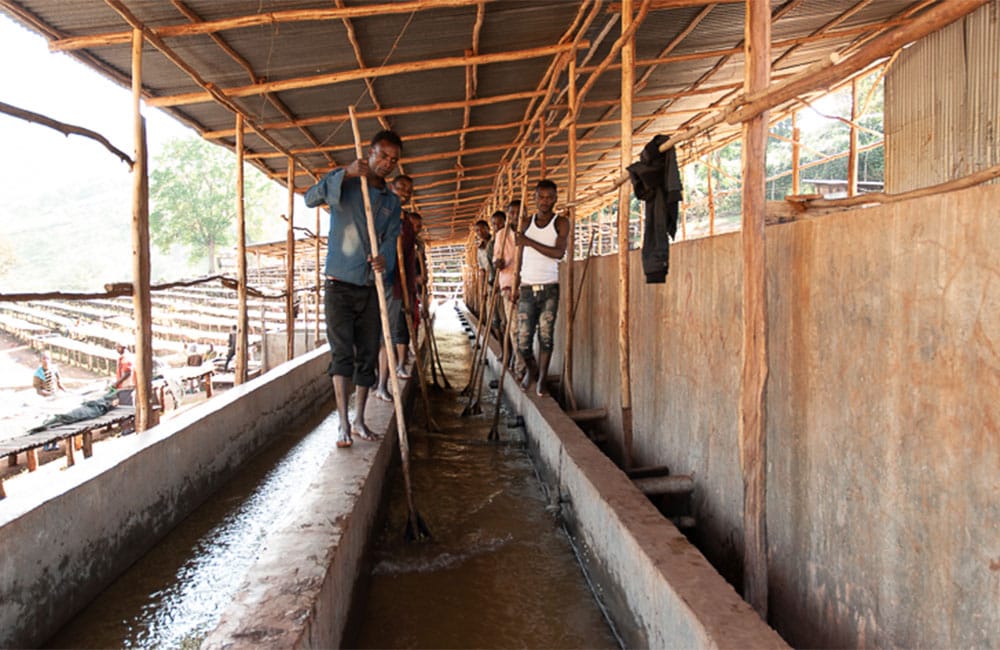| Guji | |
| 1,800 – 2,200 masl. | |
| Kurume, Welicho | |
| Washed | |
| Smallholders |
It was after the fires that swept through this area between 1997 and 1999, which burned more than 5,000 hectares of forest, that Tesfaye Bekele introduced coffee farming to help local people recover a livelihood.
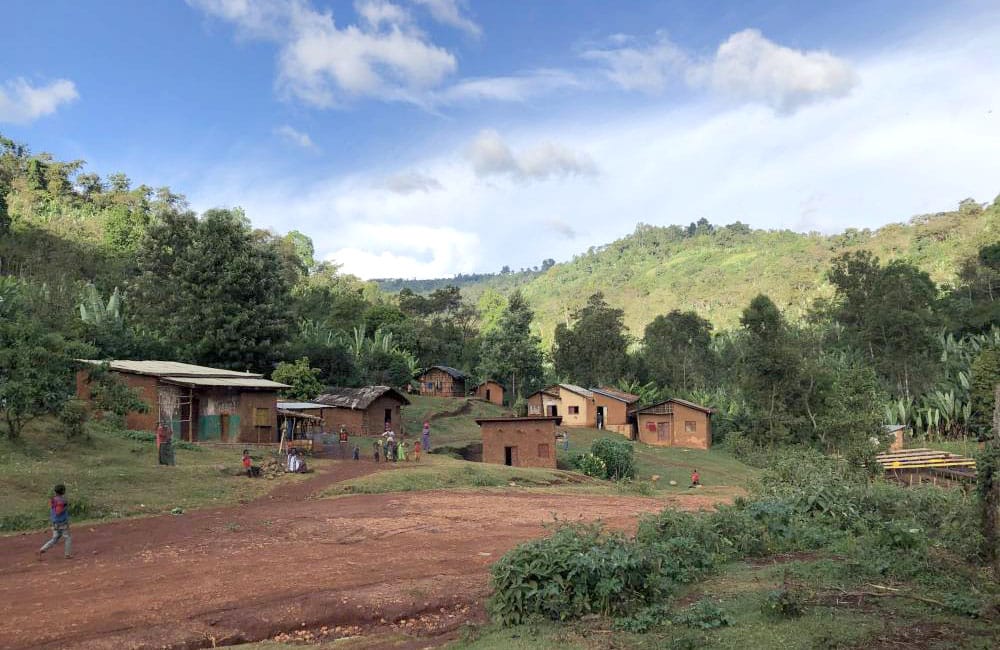
The story of Tesfaye Bekele
As he says: “At first I wasn’t interested in coffee. The work is hard and the days are long. But after several years of study and other work, I returned home to the Shakisso Woreda, Guji. I got involved again with coffee farming.”
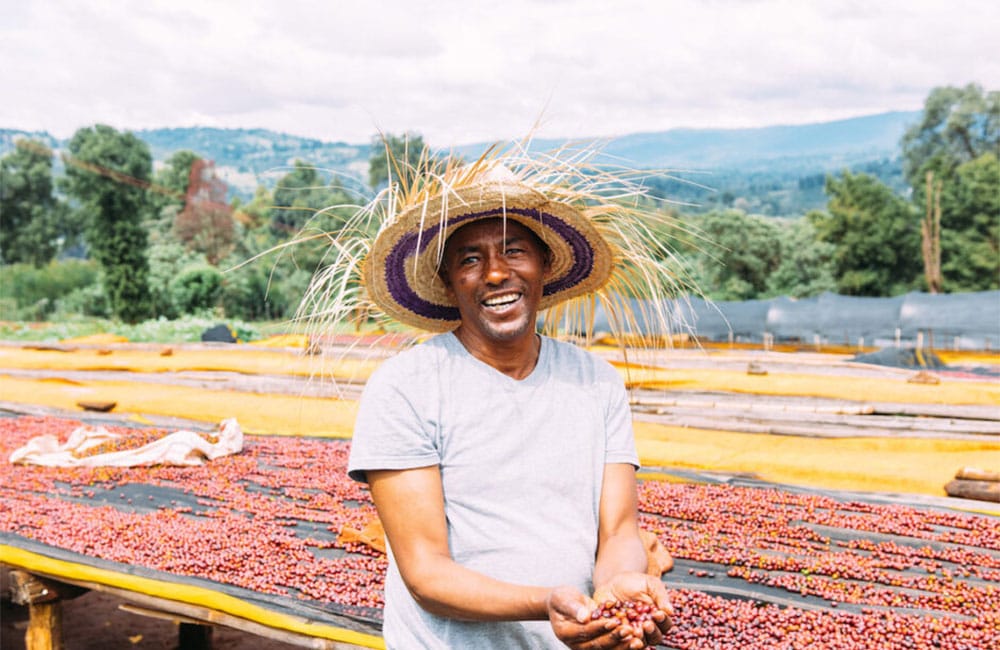
Tesfaye initially encountered resistance to introducing coffee farming to an area that had previously been devoted to cattle ranching.
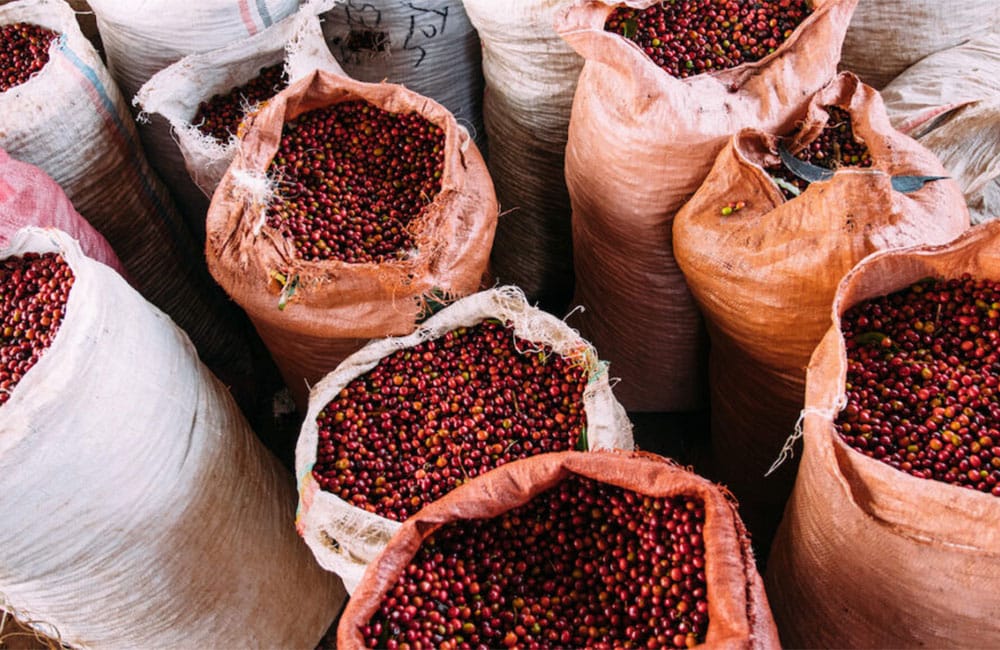
Tesfaye realized that he could not stop the people from returning to the land and starting these crops.
If he wanted to regenerate the area, he had to offer an alternative.
As he recounts: “I proposed to them the idea of replanting the forests and also adding coffee trees to improve diversity. The local community agreed to my proposal and asked me to provide the coffee seedlings.”
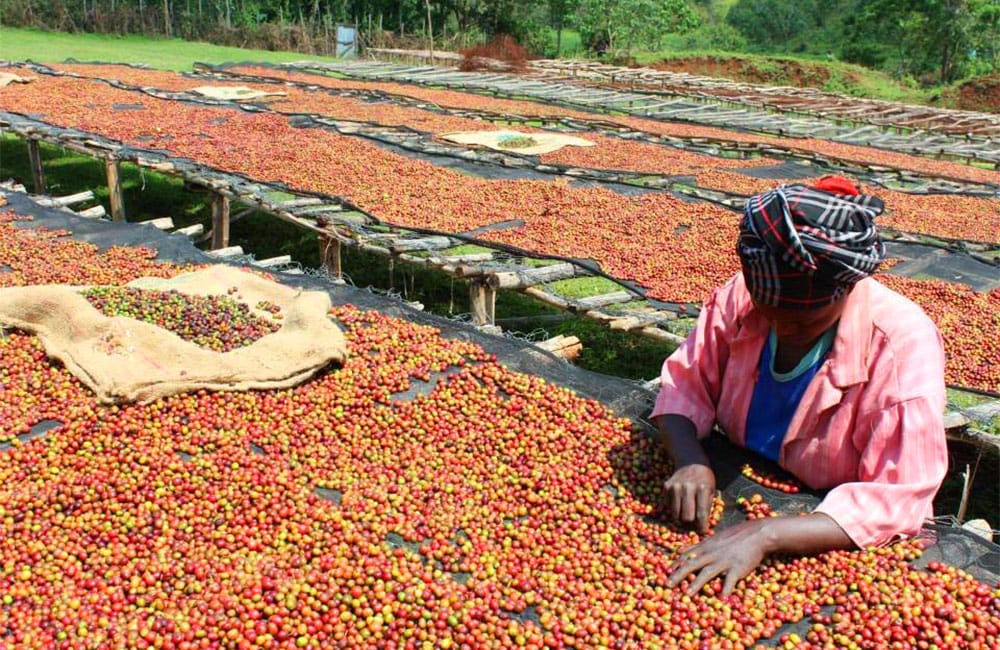
The ideal conditions for growing coffee
Start with the farmland being a rich soil, at a high altitude and in the right weather conditions.
The variety of coffee trees planted is important, as well as the cultivation and processing. The know-how of coffee growers is also very important.
The Guji region, where Tesfaye wanted to promote specialty coffee farming, which is respectful of the environment and offers better conditions for coffee farmers, had all these characteristics.
But there were some missing elements that Tesfaye could provide.
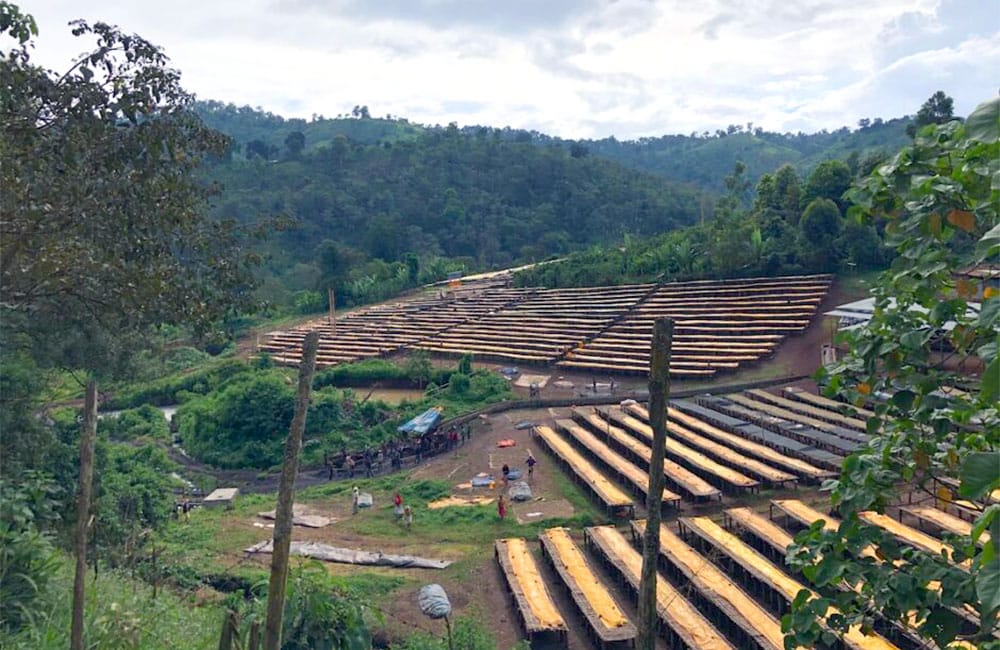
Tesfaye establishes himself as a coffee farmer and an example for his community
Though he ran into a problem: “People started asking me how long it would take before this crop would start producing cherries. ‘Four to five years,’ I said. After hearing this they returned the seeds to me.”
Planting tef or corn was more profitable in the short term.
Disappointed by the lack of faith among his community, Tesfaye set aside a piece of land. On this small plot, he started a coffee plant nursery with government money.
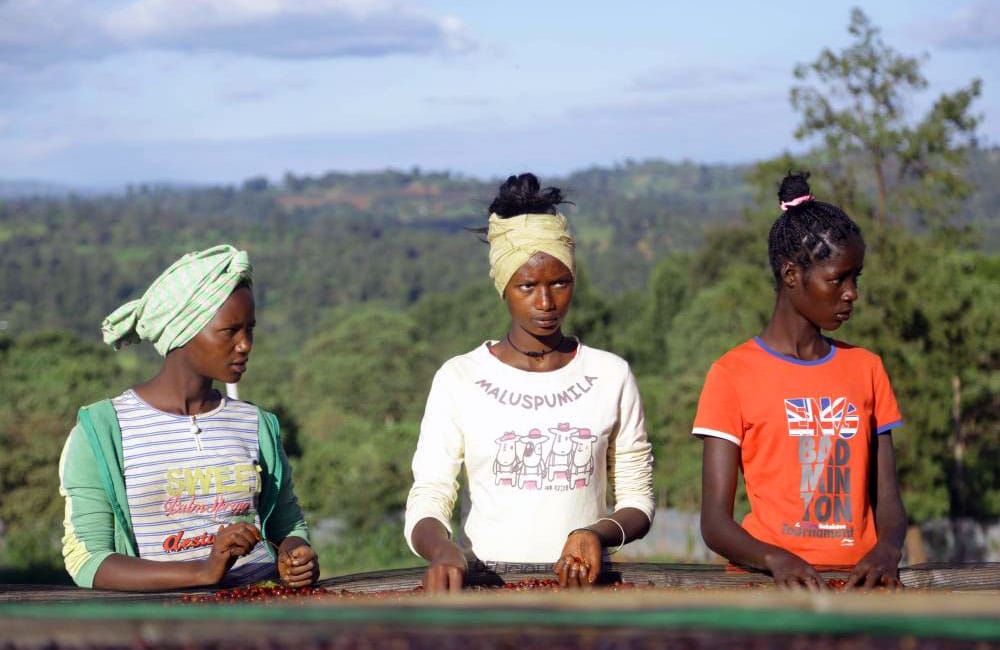
Tesfaye appointed several managers to oversee the farm, but all found the job unattractive due to years without tangible results.
Due to this, Tesfaye left his job for the government and established his own coffee plantation as an example for the community.
After their first harvest, the community, who had initially rejected the idea, returned to Tesfaye. “First they rejected me, but then they came back and asked me for coffee plants. I am very proud of this idea because all the farms you see today in Guji are inspired by Suke Quto Farm.”
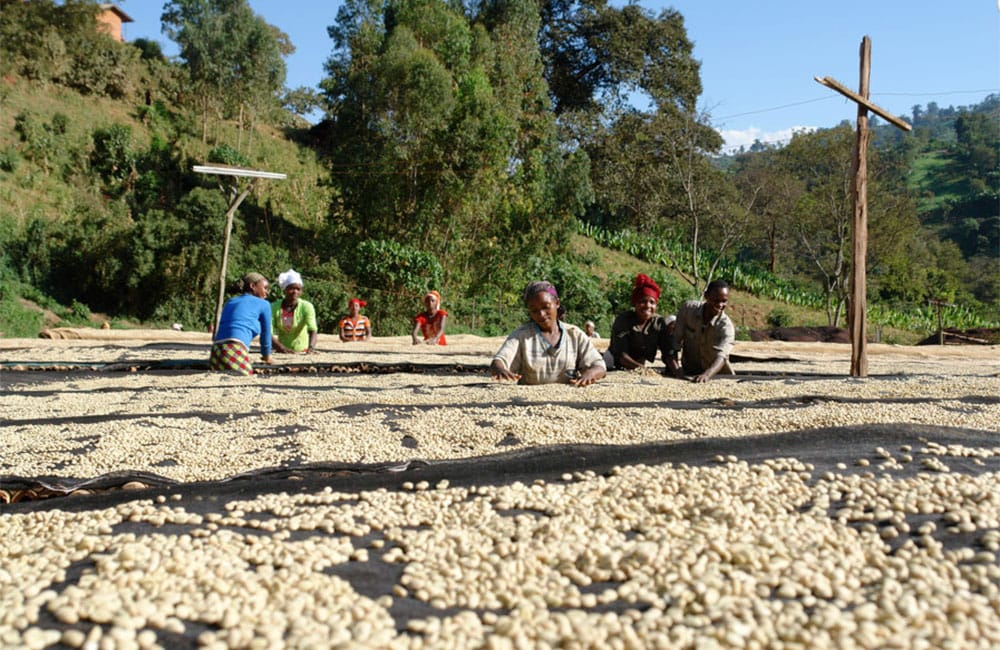
The Suke Quoto Farm
The volcanic soil on which the farm is located is very fertile.
Tesfaye keeps the soil in optimal condition by recycling leaf litter, coffee root waste, and shade trees.
Suke Quto coffees are all organic and certified by the Rainforest Alliance.
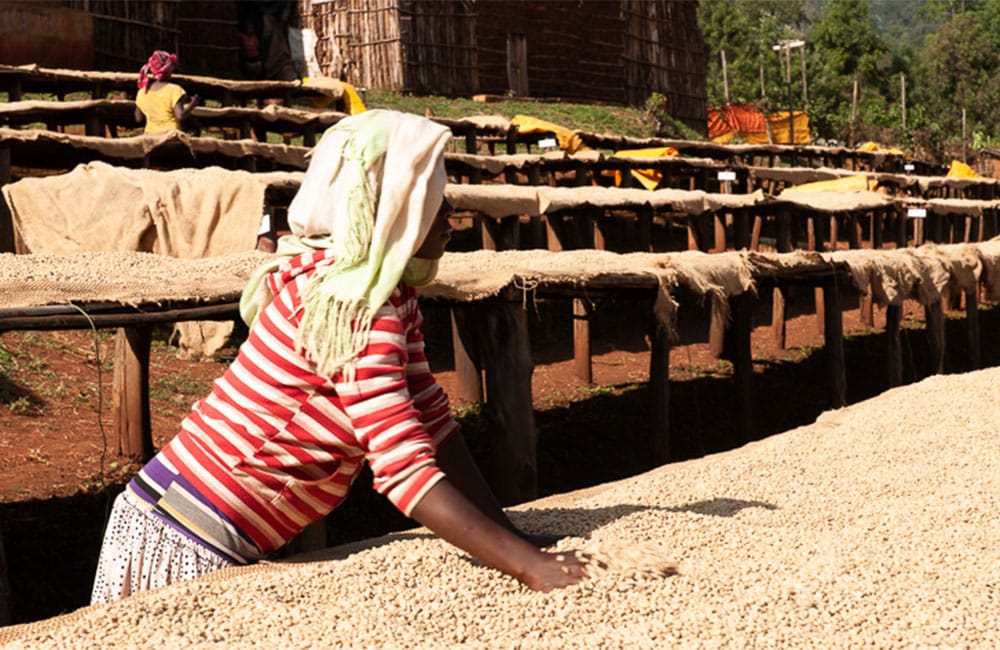
Además de esto, Tesfaye cultiva otras 221 hectáreas en las tierras altas de Guji.
Cada temporada Tesfaye da empleo a más de 200 personas solo en sus cultivos.
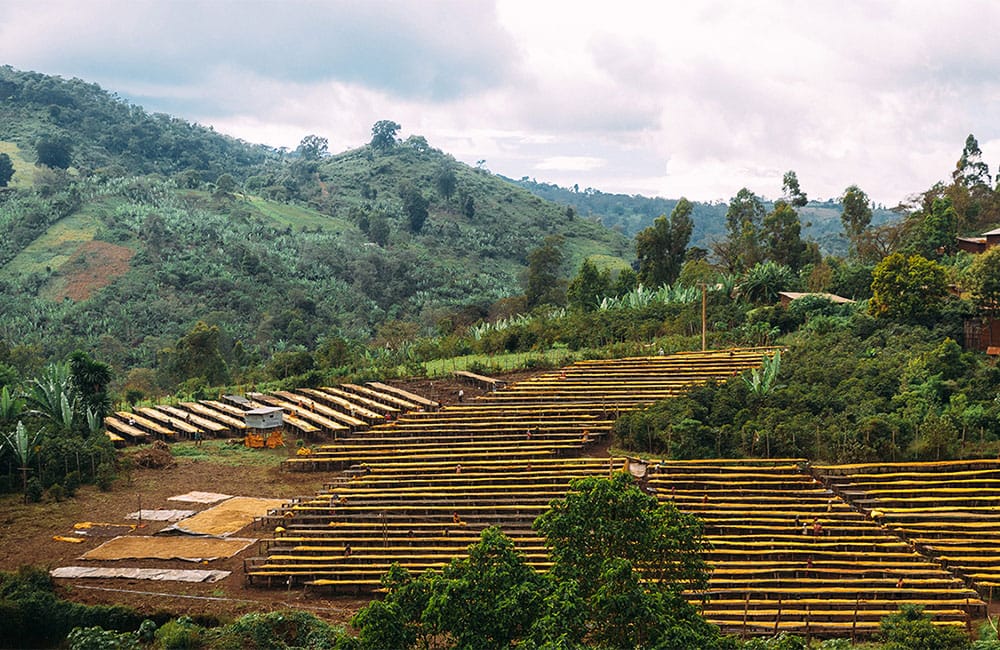
Suke Quoto washing station
The coffee beans are then fermented for approximately 35 to 48 hours (depending on the weather at the time) in fermentation tanks. Suke Quto’s natural coffees are dried between 9 and 15 days on raised beds.
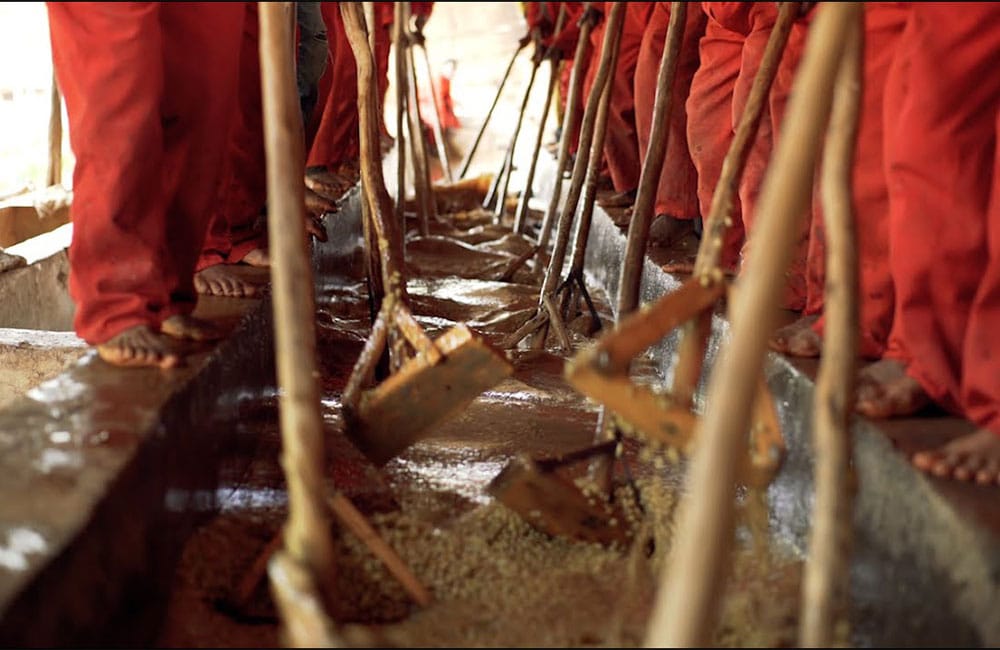
In other words, people should earn a decent income from sustainable coffee production. Tesfaye has also started a community project that aims to renovate local schools.
Tesfaye has been and is one of the innovative forces that has made Guji coffee successful, has helped regenerate Guji’s forests and provided a decent livelihood for hundreds, if not thousands of people.
